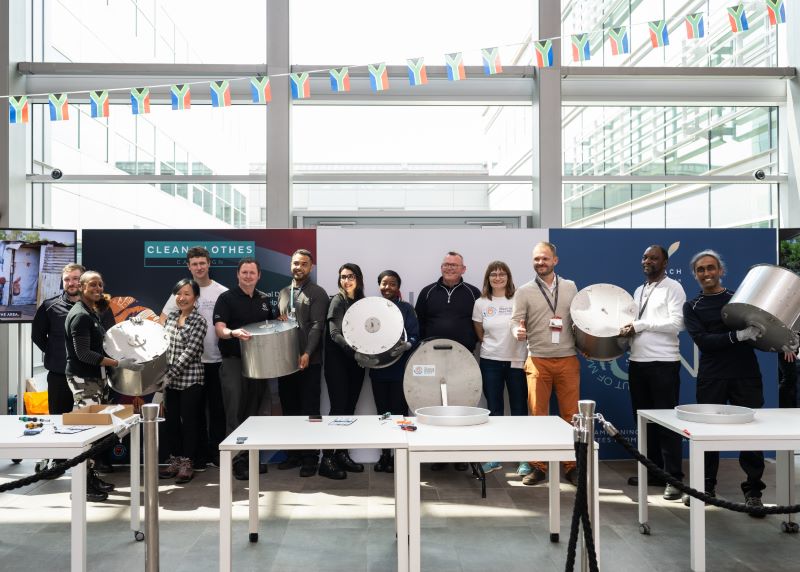
JLR delivers Divya washing machines to households in the South African villages
London, July 26, 2024, (Oilandgaspress) –– JLR has teamed up with The Washing Machine Project to help transform the lives of thousands of women and girls in South Africa by building ten community manual washing machines to help a community in need in Diepsloot, Johannesburg.
The Clean Clothes Campaign aims to help tackle the burden of handwashing clothes and promote gender equality by relieving women and children of up to 20,000 hours of chores a week, so they can fully enjoy their rights to work, education, good health and leisure time.
As well as JLR engineers volunteering their skills and time, the year‑long campaign project has seen efforts across JLR’s broader workforce, with over £4,900 of funding raised by its colleagues who are part of the business’s Race, Ethnicity and Cultural Heritage (REACH) network.
The luxury car manufacturer’s talented engineers used their automotive expertise to enhance the design and functionality of the Divya washing machines, to meet the needs of households in the South African villages.
With support from its freight team, JLR delivered the Divya washing machines, built at its Gaydon HQ in the UK to the communities in South Africa using one of its Defender vehicles.

Mandisa Gordon, JLR’s Finance Business Change Manager, who led the campaign on behalf of JLR said: “JLR is dedicated to making an impact in communities where the need is greatest. We were overwhelmed by the huge support we received from our colleagues in the UK and in South Africa, to make this initiative a success. Participating in food parcels and personal care product deliveries, as well as fundraising, has been some of my proudest moments!”
Former JLR employee Navjot Sawhney, who founded The Washing Machine Project, started this project on a trip to India, engineering cook stoves. Nav was struck by how much time his neighbour would spend doing back‑breaking chores, including hand washing clothes for up to 20 hours each week. He promised her a washing machine, and he developed the first prototype when he returned home and called it Divya after his neighbour. He started the social enterprise five years ago whilst still working at JLR, where he received full support from his colleagues.
This project also aligns with JLR’s mission to achieve a net‑zero sustainable future, the project takes a holistic approach to community engagement. The sustainable Divya washing machine operates a 30‑minute wash cycle where it completes a 5kg load‑ with only a few minutes of manual turning ‑ saving up to 75% of time for its user, and halving water consumption. It eliminates the need for electricity and can be recycled at the end of its life due to the materials used to build it. It has large capacity for communal use which meets the needs of big families and women‑led households. Additionally, the machine addresses common physical handwashing issues like chronic back pain and skin irritation.
Information Source: Read More
Oil and gas press covers, Energy Monitor, Climate, Renewable, Wind, Biomass, Sustainability, Oil Price, LPG, Solar, Marine, Aviation, Fuel, Hydrogen, Electric ,EV, Gas,

